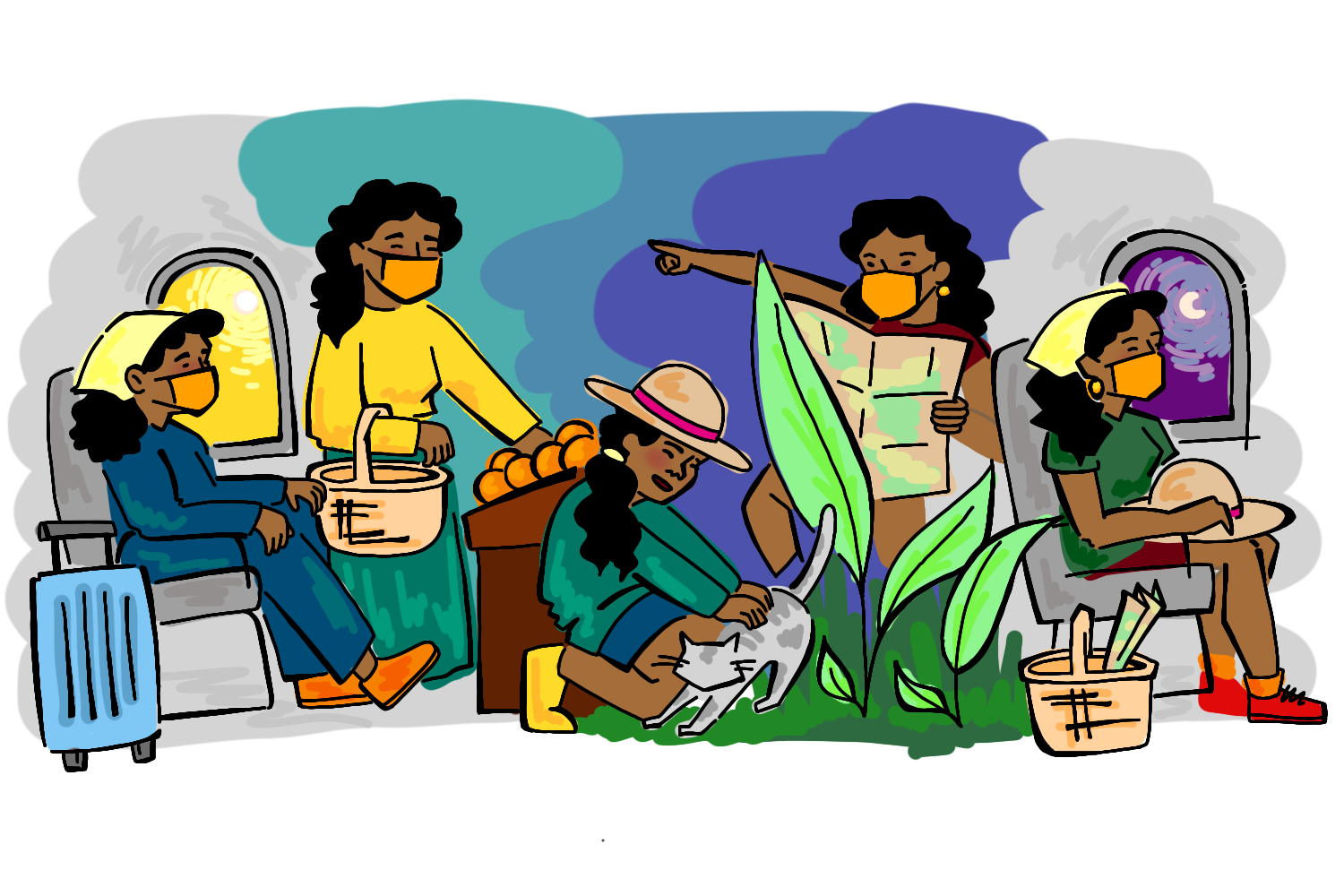
After a year of cancelations and delays, several study abroad programs successfully took place during the Fall 2021 semester, the first programs to happen since Spring 2020. Students who went on these trips to South Korea, Germany and Spain detailed their experiences studying abroad during COVID-19.
Olivia Olson ’22 spent the semester studying in Seoul, South Korea. She lived in an on-campus dorm at Yonsei University and took classes online.
“COVID wasn’t really a concern of mine, because I really felt like everybody was doing their best,” Olson said. “And honestly, health care was $5 or something like that. So if I did get COVID, I didn’t feel that concerned about it. I knew what I was supposed to do. I knew what the quarantine rules were for both my school and for the country.”
Regulations from the South Korean government impacted Olson’s time abroad during the pandemic the most. However, she felt their handling of the pandemic was more systematic than the United States.
“There’s an app called Kakao Talk and you could register your alien registration number and your vaccination records and all that,” Olson said. “And it would spit out a QR code once you registered with the government. And then every time you went into a restaurant, or anything, you would scan the QR code, so contact tracing was super easy. You just get a text if you were exposed in any way.”
Everyone wore masks, and public places like restaurants were all open and required visitors to be vaccinated. If there was any exposure to COVID-19, people could get tested for free. Olson only needed to get tested once during the semester. In general, South Korea’s handling of the pandemic felt ___(maybe orderly) and_.
“Everyone followed the rules,” Olson said. “It was crazy.”
Olson had initially been abroad in Strasbourg, France in Spring 2020, when the emergence of the pandemic sent her, and most other students overseas, home early. Olson had hoped to study abroad in India or Italy, but those programs ultimately fell through. She expressed that the LC Overseas and Off-Campus programs office was extremely helpful in assisting her to find viable programs, even if it involved applying at the last minute.
Gila Winefeld ’23, who spent the semester abroad in Berlin, was initially unsure about going overseas due to the pandemic and potential travel restrictions. However, she decided to go ahead with the program and make the most of the opportunity.
Students lived in studio apartments instead of with host families and were not able to travel outside of Germany. The program consisted of 14 LC students who lived in the same apartment building and took classes together as a cohort. Germany also uses a QR code system that reflects a person’s vaccination status, and restaurants require visitors to be vaccinated.
“There (was) a lot of flexibility in what we could do, there (was) a lot of downtime too,” Winefeld said. “After classes and after exploring the city or whatnot during lunch, we’d take the tram back. And it was nice that we were all in the same apartment complex, because it was easy to meet up with people to study or just to do something in the evening to hang out.”
The students on the program also enjoyed exploring Germany, taking weekend trips on the train throughout the country.
Coming back to LC, Winefeld explained that the social transition has been one of the most surprising changes, be it running into people on campus or making small talk.
“I feel like with going abroad, we kind of prolonged that phase of being away from everything,” Winefeld said. “And that prolonged that phase of isolation, in a way and now coming back, it’s like everyone had this adjustment period in the fall, probably when people came back to in-person, and I feel like we’re having this adjustment period now.”
Sonya Arnis ’22 spent the semester in Grenada, Spain. She also initially felt apprehensive after seeing friends get stuck in Morocco when the pandemic began during the Spring 2020 program. Still, she felt like the opportunity was worth it.
“People were not that concerned about COVID,” Arnis said. “But you never saw people inside at the grocery store without masks on. But if you were in a club or a bar or something, people would not wear masks.”
Students were required to wear masks in classrooms, and most indoor spaces focused on ventilation and open windows as one of the main barriers against the spread of COVID-19. Arnis was able to travel freely throughout Europe during her program. However, toward the end of the program, the increase in COVID-19 cases due to the Omicron variant did pose difficulties.
“So it was like a really stressful travel experience getting back because … COVID cases were spiking,” Arnis said. “Leaving Spain, I knew that they were probably gonna have more intense restrictions, maybe in like two weeks. So I left knowing that in two weeks, it would probably be worse like, maybe we’re going to go into lockdown.”
Returning to LC, Arnis felt that starting the spring semester remotely felt similar to the 2020-21 academic year, with hybrid classes and more rigid restrictions on campus. Olson also expressed the difference between being in South Korea versus the U.S.
“It just definitely doesn’t feel secure (or) as taken care of,” Olson said.
Subscribe to the Mossy Log Newsletter
Stay up to date with the goings-on at Lewis & Clark! Get the top stories or your favorite section delivered to your inbox whenever we release a new issue.

Leave a Reply